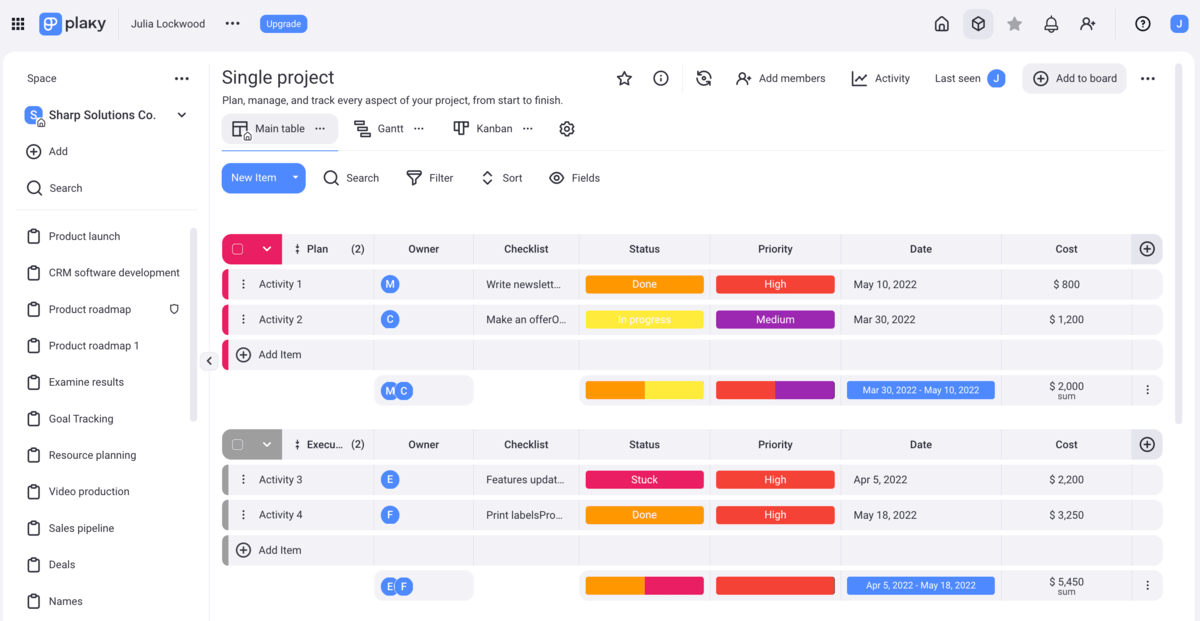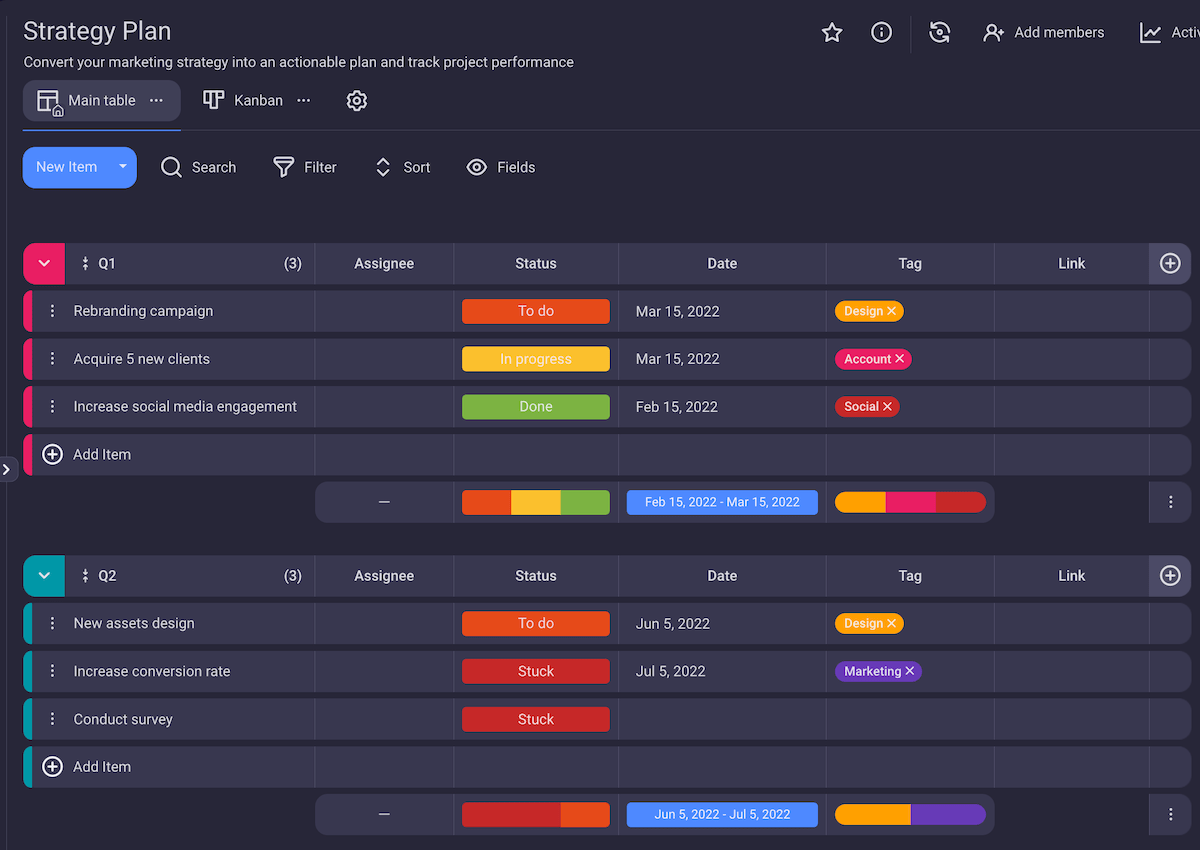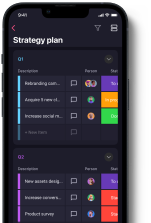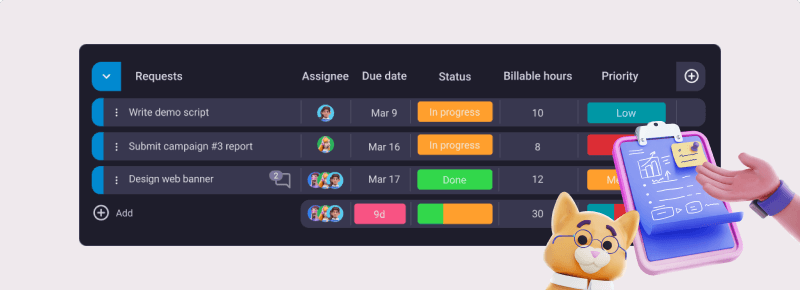Both employers and those searching for jobs are often faced with a dilemma of what project coordinators and project managers are. Many are wondering if these two jobs are the same, and if not, whether their roles overlap in any way.
In this text we will:
- Find out whether project managers and coordinators are equal,
- Explain what project coordinators are,
- Explain what project managers are,
- Define their roles and skills, and
- Point out their differences.

Table of Contents
Is project coordinator equal to project manager?
The titles of project coordinator and project manager sound similar. That’s why people often think they are the same.
However, they are definitely different. Project managers are often superiors to project coordinators. In fact, project coordinators work under project managers.
To get a better understanding of these two occupations, let’s dig deeper into what they stand for.
Who is a project coordinator?
A project coordinator is a professional responsible for the smooth running of the project as well as making sure that everyone working on the project is on the right path.
They work together with project team members and often act as mediators between the company and the clients. Their main task is to make sure that the execution of the project is successful through all of the stages.
💡 Plaky Pro Tip
If you want to learn more about project coordination, visit this page:
What are the responsibilities of a project coordinator?
The responsibilities that the project coordinator has differ from company to company. However, some of the main project coordinator’s duties involve:
- Learning about all aspects of the project,
- Making sure that the team members deliver their work within the project deadline,
- Keeping track of the long- and short-term project objectives,
- Monitoring the day-to-day progress of project stages,
- Ordering materials and supplies for the project,
- Being familiar with the project’s budget and working on the reduction of expenses,
- Making sure the communication around the project runs smoothly,
- Preparing assignments for the team members,
- Taking care of the paperwork on a regular basis,
- Organizing meetings, and
- Making project-related notes. Project coordinators can use project management software to track the day-to-day activities.

What are the project coordinator’s skills?
To successfully perform the work in this position, the project coordinator should acquire a certain set of abilities. For example, a project coordinator should have:
- Time management skills — It is essential that the project coordinator clearly defines the deadlines for the tasks so that everyone has adequate time to finish them. They should be able to make good estimates about how long each task should take.
- Organizational skills — A project can be very dynamic. But, the project coordinator should be able to track any changes and progress as well as determine the steps that should be taken next based on the current situation.
- Budgeting skills — The project coordinator should be thoroughly familiar with the budgeting details and make sure the project stays within the budget. They should also be able to capture and relay any potential issues with the project budget to the project manager.
- Communication skills — In order to assign tasks, plan meetings, and deliver project updates, the project coordinator should be able to communicate effectively with the team members and stakeholders.
- Attention to detail — The project coordinator should pay attention to details when working on projects. For instance, this skill comes in handy when organizing meetings, assigning due dates, and producing detailed documentation. An oversight on their part could cause problems with the project timeline, task allocation, or documentation that would significantly set the project back.
- Problem-solving skills — Every project can encounter minor problems which should be solved by either the project coordinator alone or with the assistance of the team. As a person responsible for the successful execution of the project, the project coordinator should be able to remove any obstacles and solve issues that arise during the project execution.
Who is a project manager?
Being the backbone of every project, a project manager has an extensive list of responsibilities.
A project manager is a professional whose job is to lead the team carrying out the project objectives.
Their main task is to ensure that the project objectives are met before the deadline and within the predetermined budget.
The project manager should also be familiar with the details of the project as they have to organize and guide it throughout the 5 project phases.
What are the responsibilities of a project manager?
Since the project manager’s role can be broad, there are numerous responsibilities or tasks they might have, such as:
- Building the project team,
- Defining the project schedule,
- Defining project goals,
- Defining the scope of the project,
- Creating project plans and managing the plan changes,
- Managing documentation, budget, and project risks,
- Choosing project management tools and resources for the project, and
- Taking care of the progress of the project.
The use of project management tools such as Plaky can really help with setting deadlines, managing the budget, and the overall organization of the project, as it allows you to have all the necessary information in one place.

What are the project manager’s skills?
The project manager should possess both hard skills and soft skills, some of which are:
- Communication skills — Just like project coordinators, project managers should also communicate well with other members of the team and the stakeholders since they need to make sure the project goals are aligned with wider business objectives and strategies.
- Assessment skills — A project manager should make sure that the project plan is adaptable and that the issues that arise can be resolved.
- Negotiating skills — In order to eliminate difficulties and achieve a successful completion of the project, the project manager should have good negotiating skills. They need to make sure that the stakeholders’ needs are met, but they should also be able to negotiate terms if their requirements are unrealistic.
- Time management skills — Both project coordinators and project managers should take care of the deadlines and make sure that the tasks are delivered on time.
- Leadership skills — Project managers need good leadership skills in order to inspire coworkers to bring the project to an end successfully, as they are primarily accountable for the project outcome.
- Risk management skills — It is important that project managers can manage risks that they face properly. They need to identify and analyze any potential project risks and devise safeguards that will ensure the risks are mitigated.
- Technical skills — Knowing the industry and the market that the project is aimed for as well as the methodology used for the execution of the project is an important skill the project manager should possess.
💡 Plaky Pro Tip
If you want to learn more on how to become successful in project management, check out these more detailed guides:
Differences between project coordinators and project managers
Despite their similar-sounding position names, the roles of these two occupations are pretty different. They differ in many aspects.
Here is a list that will help you get a clear understanding of the differences between the two.
| Project Coordinator | Project Manager |
|---|---|
| – Takes care of everyday activities that keep the work on the project on track – Responsible for one extensive project at the time – Works on administrative tasks linked to the project such as answering emails, processing data, preparing documentation and organizing meetings | – Makes decisions about the project and defines project objectives – Assigns the tasks to the project coordinator – Responsible for the overall goals, budget, and the deadlines of the project – Can be responsible for multiple projects at the time |
To sum up, the project manager has greater responsibility than the project coordinator when working on a project.
In a way, the project coordinator works under the project manager. While the project manager is focused on the bigger picture, the project coordinator is concerned with the details of the execution of the project manager’s vision.
Who earns more: project managers or project coordinators?
According to Glassdoor, the average salary of the project coordinator is $56,722 per year, whereas the average salary of the project manager is $84,953 per year.
To conclude, project managers earn more than project coordinators due to them having a job that includes more responsibilities. However, the salary can vary depending on the industry, location, organization, etc.
💡 Plaky Pro Tip
In case you want to read more about project manager salaries, check out this guide:
How to move from the project coordinator to the project manager?
The position of the project coordinator is a perfect springboard to becoming a project manager. So, here are some tips that can help you become a project manager.
Tip #1: Improve your soft skills
To move up to the position of project manager, you should improve your soft skills such as communication and problem-solving — but especially your leadership skills.
Project managers should be confident in making decisions, dealing with issues, adapting to the newly-created surroundings, and leading the team working on the project.
Tip #2: Get a project management certification
Getting a certification in project management can certainly help you improve your competence and appear more trustworthy and suitable for the job in the eyes of an employer.
Therefore, if you don’t have a formal degree, it is desirable to acquire at least one project management certification.
💡 Plaky Pro Tip
If you want to learn more about project management certifications, check out this link:
Tip #3: Ask for more responsibilities
You should not be scared to ask for more responsibilities which will help you get better acquainted with the job of the project manager as well as put to further use the already acquired skills of project coordination.
What’s more, you’ll get a chance to get some hands-on experience in project management, which will help you when applying for the job and make it easier to transition to the new position.
Tip #4: Apply for the job of the project manager
Once you’ve gained the necessary knowledge, skills, and education and feel ready for the position of project manager, you should take a leap of faith and apply for the position.
Whether you apply for this position at your current company or another, your experience as a project coordinator will certainly help.
Moreover, if you follow the previous steps we listed and apply at your own company, your superiors will already be familiar with your desire to improve, learn, and grow, as well as your results as a project coordinator.
💡 Plaky Pro Tip
Learn how to become an incredible project manager in the post below:
Conclusion: Project coordinators work under project managers
Both project manager and project coordinator are roles that play an important part in every project. Despite their different scope of work, both of them supervise the execution of the project.
Project coordinator is a junior position and the one that usually reports the work to the project manager which is a senior position. Still, both of them provide a steady job with many opportunities for progress.
✉️ Do you have any additional questions about project managers and project coordinators? Are there any dilemmas regarding their skills and responsibilities? If so, feel free to contact us at blogfeedback@plaky.com, and we may include some of your ideas in our future blog posts. Also, if you liked this post and found it useful, share it with someone who will benefit from it!







